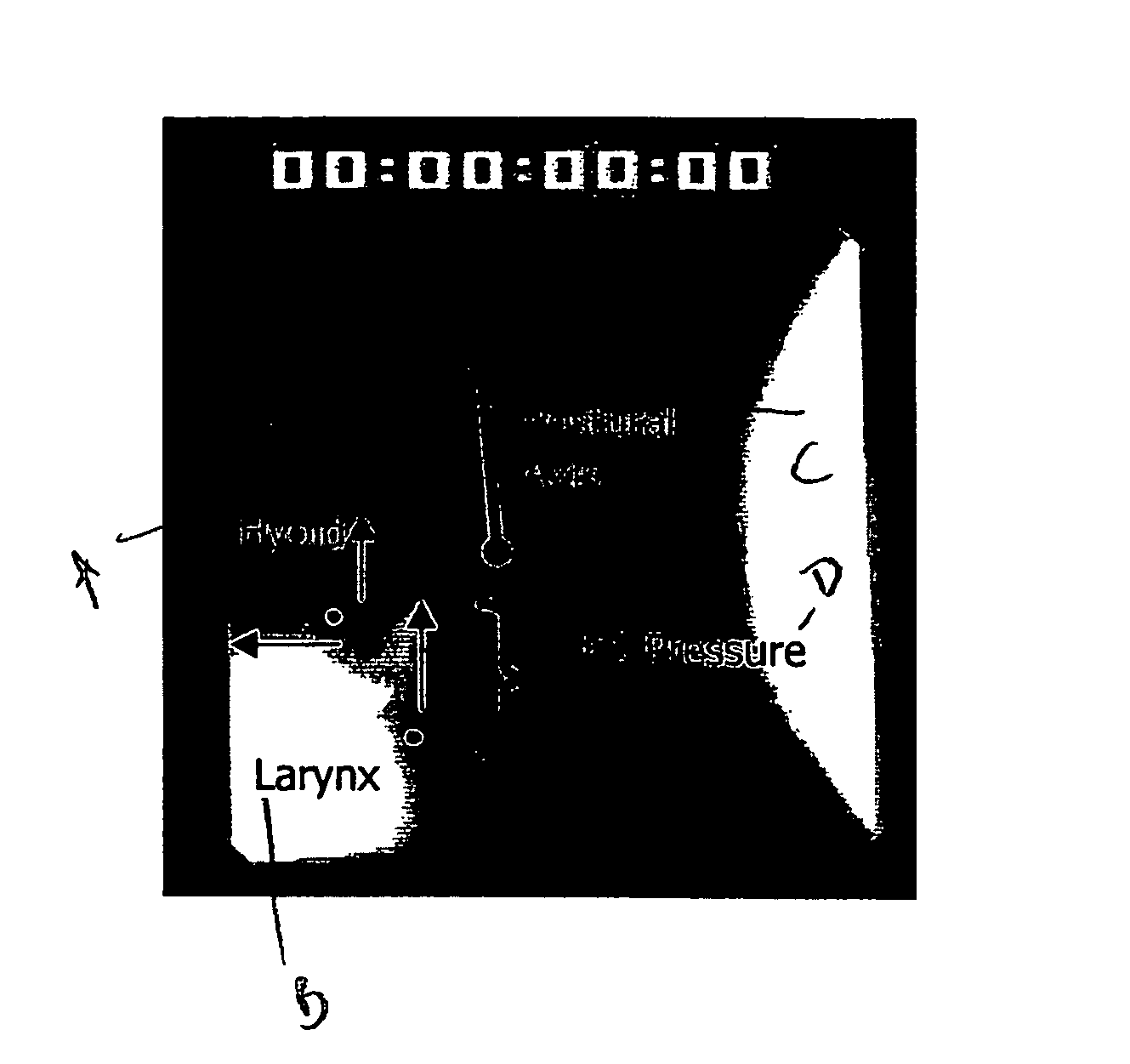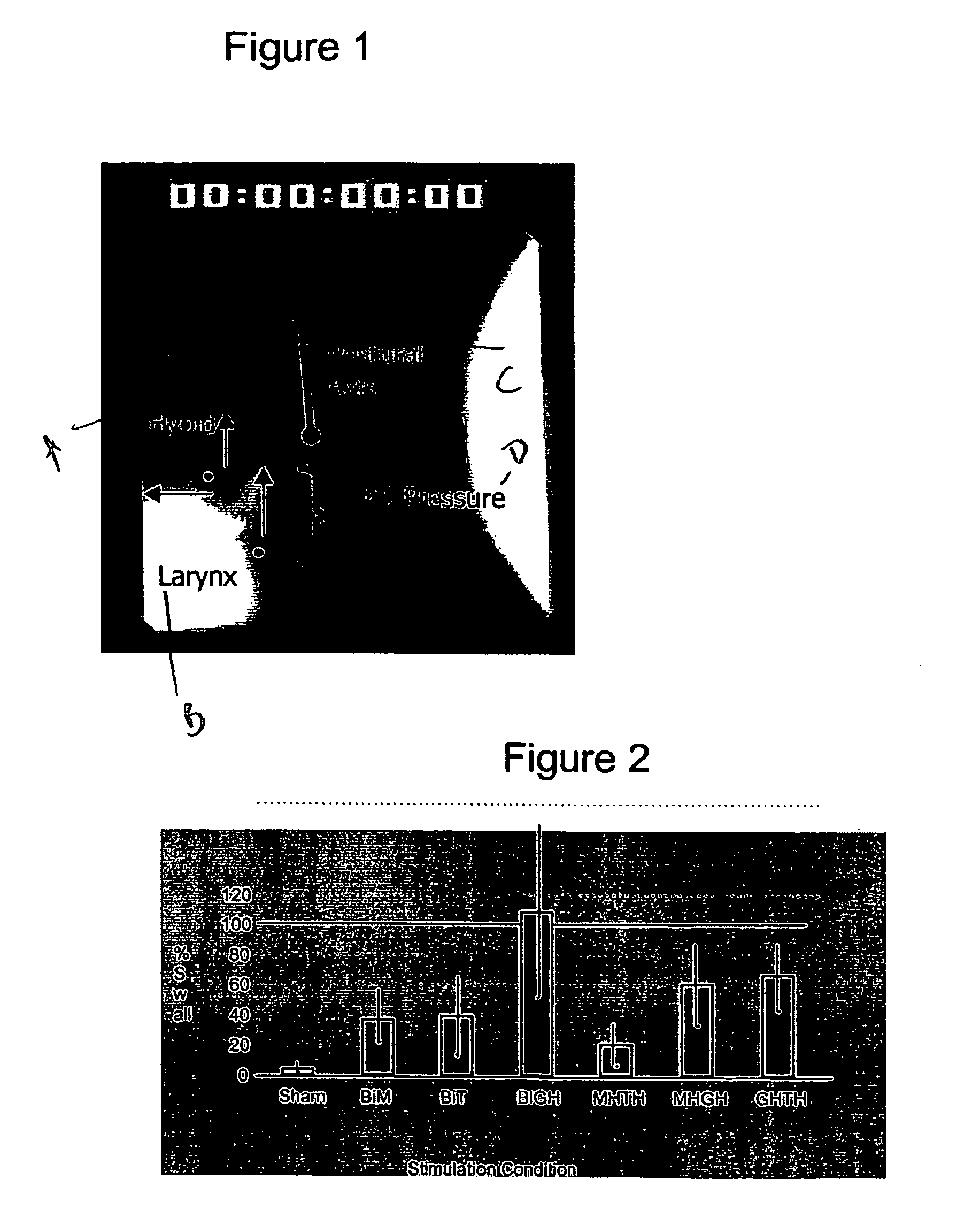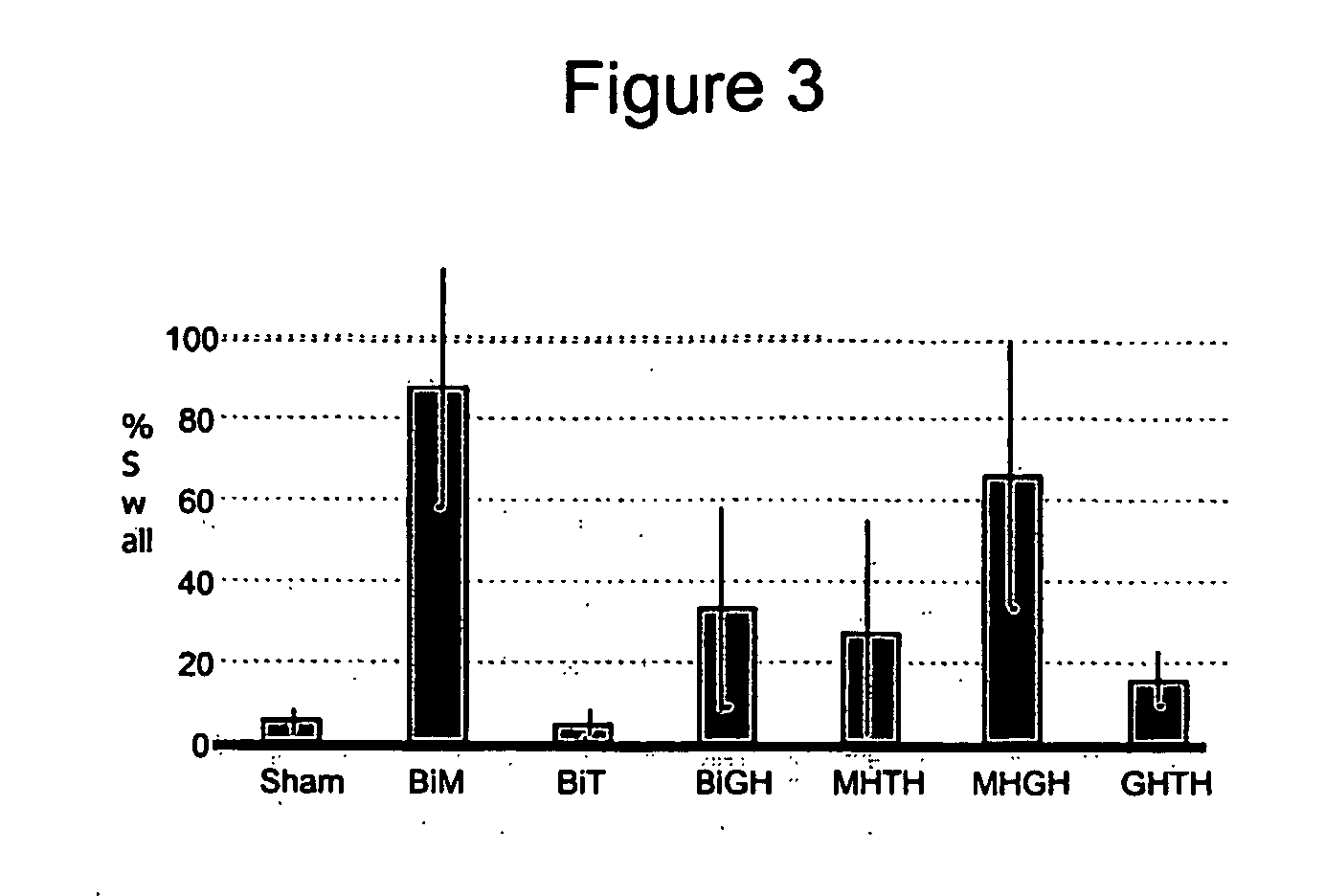Methods and devices for intramuscular stimulation of upper airway and swallowing muscle groups
a muscle group and intramuscular stimulation technology, applied in the field of muscular function modification devices and procedures, can solve the problems of pneumonia risk, high treatment cost and the commensurate value of remediation technology if one were available, and underestimated cost, so as to prevent pneumonia risk and prevent aspiration in chronic dysphagia
- Summary
- Abstract
- Description
- Claims
- Application Information
AI Technical Summary
Benefits of technology
Problems solved by technology
Method used
Image
Examples
example 1
[0065] This example demonstrates intra-muscular stimulation of swallowing and is also detailed in J. Applied Physiology, 94: 128-134, (2003), which is incorporated by reference in its entirety, particularly with respect to methodological details relevant to the present examples.
[0066] Fifteen healthy men, each selected for his highly visible thyroid prominence, participated in this study. Average age was 42 years (range 28 to 62). Normal laryngeal structure and function was confirmed on fiberoptic laryngeal examination by an otolaryngologist (E. M.). A lateral view of the neck surface was video recorded during each trial for data analysis. To aid later video data analysis, a 5 cm×3 mm strip of white tape was adhered to the left side of the participant's neck parallel to the direction of movement of the thyroid prominence during swallowing. Placement of the tape was sufficiently lateral to assure that the underlying skin did not move in conjunction with the prominence during swallow...
example 2
[0077] Unless otherwise described, the procedures described above for Example 1 were used for this example, which demonstrates that combined muscle stimulation can move the hyoid bone in the anterior and superior direction and the larynx in the superior direction to the same or a greater extent than occurs during normal swallowing.
[0078] The skin at each electrode insertion site was anesthetized with injections of 2% lidocaine. For each site, after numbness was reported, a 27 gauge monopolar needle was inserted in a desired muscle region and a train of stimulating pulses (200 μs width, 0.5-5.0 mA amplitude, 30 Hz frequency) was delivered to induce muscle contraction. Needle location was found to be mylohyoid (MH) if the stimulated contraction retracted the submental tissue and moved the thyroid prominence superiorly. A thyrohyoid (TH) location was found if the thyroid prominence moved superiorly and twisted contralaterally. Once a desired insertion site was located, the locating ne...
example 3
[0083] Unless otherwise described, the procedures described above for Example 1 were used for this example, which quantitatively demonstrates decreased pressure in the upper esophageal sphincter in response to anterior motion of the hyoid induced by combined muscle stimulation.
[0084] To record changes in pressure exerted at the upper esophageal sphincter, a manometer was inserted into the upper esophagus. The height was adjusted until the point of maximum resting pressure was identified and recorded with the transducer. The transducer pressure signal was examined before each stimulation or swallow to determine if the transducer had returned to the same position.
[0085] Simultaneous measurements of upper esophageal sphincter pressure both during stimulation at rest and without stimulation during normal swallowing determined whether the decrease in pressure, representing opening of the upper esophageal sphincter (UES) during mylohyoid stimulation, relates to the degree and / or duratio...
PUM
 Login to View More
Login to View More Abstract
Description
Claims
Application Information
 Login to View More
Login to View More - R&D
- Intellectual Property
- Life Sciences
- Materials
- Tech Scout
- Unparalleled Data Quality
- Higher Quality Content
- 60% Fewer Hallucinations
Browse by: Latest US Patents, China's latest patents, Technical Efficacy Thesaurus, Application Domain, Technology Topic, Popular Technical Reports.
© 2025 PatSnap. All rights reserved.Legal|Privacy policy|Modern Slavery Act Transparency Statement|Sitemap|About US| Contact US: help@patsnap.com



